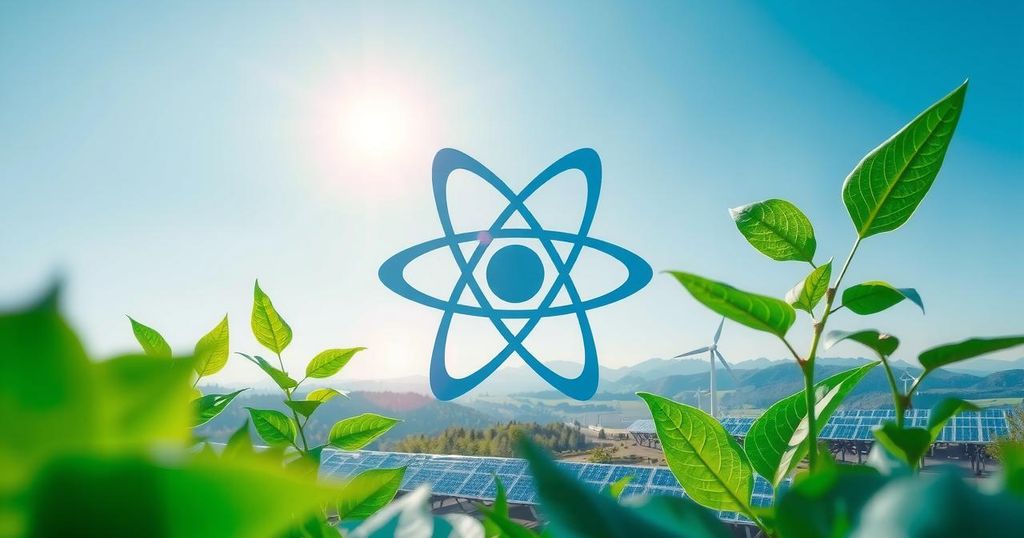Politics
ANDHRA PRADESH, ASIA, BIDEN, DEPARTMENT OF ATOMIC ENERGY, DOVAL, ENERGY, I - HUB FOUNDATION FOR COBOTICS, INDIA, INDIAN INSTITUTE OF TECHNOLOGY, INDIAN INSTITUTE OF TECHNOLOGY DELHI, INTERNATIONAL ATOMIC ENERGY AGENCY, JAKE SULLIVAN, JAPAN, KO, KOVVADA, NATIONAL SECURITY AD, NON - PROLIFERATION TREATY, NPT, NUCLEAR, NUCLEAR POLICY, NUCLEAR WEAPONS, RENEWABLE ENERGY, REUTERS, SANCTIONS, SINGH, SULLIVAN, TECHNOLOGY INNOVATION HUB, US, US DEPARTMENT OF COMMERCE, USA
Omar El-Sharif
U.S. to Lift Restrictions on India’s Nuclear Entities, Enhancing Cooperation
The United States plans to end restrictions on Indian nuclear entities to enhance civil nuclear cooperation. This move, announced by National Security Advisor Jake Sullivan, comes after years of evolving bilateral relations since the 2008 civil nuclear cooperation agreement. India’s nuclear liability framework remains a challenge, but progress is being made towards greater collaboration in clean energy and international nuclear markets.
The United States is progressing in removing longstanding restrictions that have hindered civil nuclear cooperation with India’s prominent nuclear entities. National Security Advisor Jake Sullivan announced these developments, indicating a significant shift in U.S.-India relations and underscoring the importance of collaborative efforts in clean energy and innovative technologies.
In 2008, India and the U.S. signed a civil nuclear cooperation agreement, but the full potential of this agreement has not yet been realized. Despite prior agreements made nearly 20 years ago, contractual arrangements for construction projects like the Kovvada nuclear plant have not been finalized. Sullivan emphasized the necessity of advancing this partnership, particularly as both nations strive for leadership in energy innovation and artificial intelligence.
Sullivan highlighted that the U.S. government is actively working to lift restrictions on Indian nuclear entities, framing this action as a mark of confidence in the shared progress between the two nations as strategic partners. His remarks came during an event at the Indian Institute of Technology Delhi, where he also met with Indian leadership, including Prime Minister Narendra Modi.
The U.S. had previously imposed restrictions on numerous Indian entities following India’s nuclear tests in 1998, but many companies have since been delisted as part of evolving bilateral relations. There are still some limitations on Indian nuclear organizations, with at least four entities currently remaining on the U.S. Department of Commerce’s list.
A major obstacle for international nuclear vendors has been India’s liability regulations, which place the primary liability for nuclear accidents on operators rather than suppliers. The complex legislation and the absence of defined supplier liability limits have deterred foreign investment in India’s nuclear sector.
India’s interest in joining the Nuclear Suppliers Group (NSG) further reflects its commitment to non-proliferation and the international nuclear marketplace. The U.S. has expressed support for India’s entry into the NSG since its application in 2016, highlighting the growing significance of bilateral nuclear cooperation.
This article centers on the developments regarding U.S.-India civil nuclear cooperation, particularly in light of the U.S. government’s intention to eliminate longstanding restrictions on Indian nuclear entities. The historical context emphasizes the 2008 civil nuclear cooperation agreement and subsequent challenges that have affected contractual arrangements and relations between the two nations. Additionally, the piece discusses India’s legislative framework regarding nuclear liability, which has created barriers for international nuclear vendors. The Nuclear Suppliers Group is introduced as a critical entity that governs nuclear export control, and India’s aspiration to join underscores its commitment to nonproliferation and international cooperation in the nuclear sector.
In summary, the United States is poised to remove restrictions on India’s nuclear entities, marking a significant bond in civil nuclear cooperation. This development is a testament to the evolving U.S.-India relationship, as both countries work toward a common goal of clean energy innovation and collaboration. The ongoing discussions related to India’s regulatory framework and its aspirations in the international nuclear sphere will play a critical role in shaping future engagements.
Original Source: world-nuclear-news.org








Post Comment